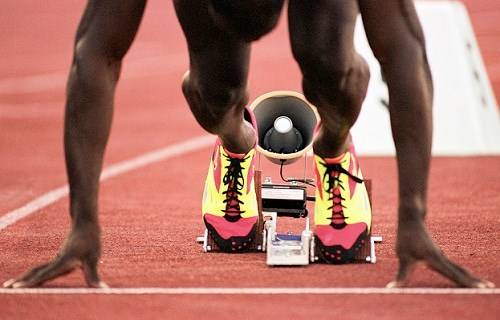Play the Game receives EU support for project to strengthen anti-doping governance
For almost four years, good governance of anti-doping – or the lack of it – has drawn worldwide attention. The combined international-Russian doping scandal in athletics and other sports has forced the World Anti-Doping Agency to review its own governance, so far with little consequence. The anti-doping scene has been marred with conflicts of interests that is weakening its public reputation.
Next year, Play the Game opens a new project that seeks to define the necessary independence and credibility of those who combat doping at the national level.
‘National Anti-Doping Governance Observer: Benchmarking Governance in National Anti-Doping Organisations’ (NADGO) will aim to assist national anti-doping organisations (NADOs) in raising the quality of their governance and promote independent practices free from conflicts of interests.
Firstly, through a mapping of the current structures, practices, challenges and weaknesses of governance in the field of anti-doping and secondly, by developing a code of good governance and a practical benchmarking tool that can be used to evaluate NADOs performance on good governance parameters.
Through the code of good governance, the project will deliver specific assistance in addressing good governance deficits by showing best practice examples of crucial documents and through two workshops within the wider community of NADOs.
The project will be carried out in cooperation with the Institute of National Anti-Doping Organisations (iNADO) and five of their member organisations: NADA from Germany, POLADA from Poland, the Slovak Anti-Doping Agency, the Anti-Doping Unit of Sport Ireland and Anti Doping Denmark. The academic partners are German Sport University Cologne, KU Leuven (Belgium) and Warsaw Universities. Last, but not least, athletes’ interests are represented by European Athletes Association and Fair Sport.
“We are very grateful to be selected by the European Commission for financial support, and for the engagement from highly competent partners,” says Christina Friis Johansen, international policy advisor of Play the Game.
“Anti-doping governance is on top of the sports political agenda and we are looking very much forward to engage and contribute with recommendations for best practice based on scientific research, and the shared experience from athletes and from those who work at the coal face of anti-doping,” Friis Johansen says, adding:
“Although all anti-doping organisations are obliged to comply with the World Anti-Doping Program, no guiding or binding principles exist to measure the level of good governance in anti-doping at the national level and this is what this project will contribute to."
The project employs a multi-stakeholder approach. Measures include collection of athletes’ views on anti-doping governance issues, analysis of current organisational structures of national anti-doping agencies and their governance practices, identification and sharing of good practices and awareness raising actions, literature review, questionnaires, round tables, workshops and network building to increase the competences of national anti-doping actors in good governance.
In the broader perspective, the project could contribute to increased independence and credibility of NADOs, but it will also give governments and partners such as WADA, the CoE and UNESCO a platform to discuss a possible harmonised approach or minimum requirements for organisational structures of NADOs.
Partners in the project are:
- Anti Doping Denmark
- German Sport University Cologne
- European Athletes Association
- Fair Sport
- Institute of National Anti-Doping Organisations (iNADO)
- Katholieke Universiteit Leuven
- NADA Germany
- Polish Anti-Doping Agency (POLADA)
- Slovak Anti-Doping Agency
- Sport Ireland (Anti-Doping Unit)
- Warsaw University
The project will be conducted over a two year period from 2019-2020 and will receive funding of around 200.000 euro from the Erasmus+ program. The Danish Institute for Sports Studies (Idan)/Play the Game will be the project coordinator.






